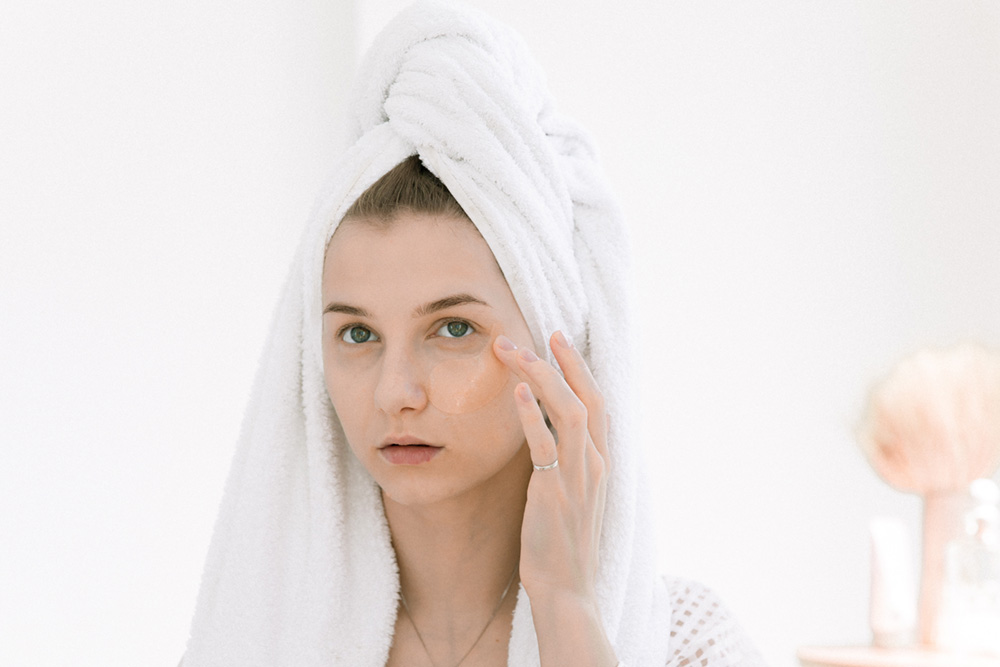
Mandelic Acid Benefits for Skin Cell Turnover and Acne Reduction
Christine Ruggeri, CHHC via Dr. Axe – We’re all looking for the secret ingredient that will give us a clearer, brighter and more youthful appearance. There’s no shortage of natural and synthetic ingredients in the cosmetic world, with alpha hydroxy acids like mandelic acid (MA) one of them.
Mandelic acid is an exfoliant that’s used in skin peels to promote cell turnover, improve skin texture and fight acne. Unlike most acids used in skin care, MA is known to be gentler on the skin because of its larger molecular structure, so even those with sensitive skin types can use it with a greater chance of tolerability.
What Is Mandelic Acid?
Mandelic acid is a type of alpha hydroxy acid (AHA) that’s used as an exfoliator and tool to promote skin cell turnover. It’s derived from bitter almonds and used in cosmetic products and prescription topicals to improve acne and fight signs of aging.
Like salicylic acid, glycolic acid and azelaic acid, MA is a common ingredient in skin peels, serums and masks. It’s a gentle acid that works to improve complexion, texture and elasticity.
Benefits
The many mandelic acid benefits come from its exfoliating properties and ability to promote skin cell turnover. Here’s a breakdown of the top reasons to use a product containing MA:
1. Exfoliates the Skin
Mandelic acid is known for its ability to exfoliate the skin and promote surface skin cell turnover.
It releases skin cells, while removing buildup on the skin’s surface. This leaves you with a fresher, brighter appearance and supports overall skin health.
Skin cell turnover also improves damaged skin, reduces hyperpigmentation or dark spots, and helps to reduce acne.
2. Increases Collagen Production
Research indicates that exfoliants like mandelic acid work to remove existing epidermal skin structures and promote new collagen production. They also boost or balance sebumproduction and help keep the skin hydrated when it’s dry or damaged.
3. Improves Complexion and Firmness
Mandelic acid helps clear away old skin cells and promote new cell growth. It also controls sebum levels and improves skin elasticity.
For these reasons, it’s a great tool for better complexion, firmness and texture.
A study done to evaluate the efficacy of a MA topical found that after four weeks of use, it increased skin firms by 23 percent and increased elasticity of the lower eyelid skin by 25 percent. The study authors concluded that mandelic acid is an effective topical treatment option for improving skin quality.
4. Fights Acne
A 2020 study that compared the effects of salicylic acid and MA on improving acne found that both agents were equally effective, with mandelic acid having an upper hand in treating inflammatory lesions. Researchers concluded that a 45 percent mandelic acid peel was equally effective as 30 percent salicylic acid peel in mild to moderate facial acne, but the safety and tolerability of mandelic acid was better.
5. Gentle on Sensitive Skin
Mandelic acid has a larger molecular structure than other AHAs that are commonly used in skin care products, making it less able to penetrate the skin deeply but allowing it to be gentler on sensitive skin. While some acids can cause skin irritation, mandelic acid peels are known to be well-tolerated and just as effective.
How to Use
You will find mandelic acid in skin peels, serums, masks, face washes and other skin care products. For most mandelic acid products, using them two to three times weekly is enough — or less for sensitive skin types.
MA can be used in combination with most other cosmetic ingredients or products, but don’t use it with other peels or retinol to avoid adverse reactions. It’s also important not to use MA on sunburned or irritated skin.
Most often, products containing MA are applied as part of a nighttime skin care routine, used after cleansing the face and before applying moisturizer. Every product is different, so follow the directions on the label, and take it slow to avoid irritation or adverse reactions.
Risks and Side Effects
Mandelic acid is considered to be gentler on the skin than many other AHAs, but it’s still possible that you experience sensitivity to it, so try it on a small surface area first. Some possible side effects of mandelic acid include swelling, redness, itching and irritation.
It is possible to overdo it with skin care products that contain exfoliants like MA, so stick to one to three times per week ,and reduce usage if you experience adverse reactions.
Mandelic vs. Glycolic Acid
Glycolic acid (GA) is also an alpha hydroxy acid that’s commonly used in skin care products for its hydrating and acne-fighting effects. Like MA, it works as an exfoliant that removes dead skin cells and makes way for new ones. It also helps get rid of excess oils and buildup on the skin.
You’ll find glycolic acid in face washes, toners, creams and peels. Products containing this acid are usually recommended for people with normal, oily or combination skin, but those with dry or sensitive skin may not do well with GA.
Mandelic acid has a larger molecular structure than glycolic acid and other AHAs, so it’s known to be gentler on the skin.
Conclusion
- Mandelic acid is a type of alpha hydroxy acid that’s used as an exfoliator and tool to promote skin cell turnover.
- It’s derived from bitter almonds and used in cosmetic products and prescription topicals to improve acne and fight signs of aging.
- Start by using products containing MA once per week in the evening, after cleansing your face. If your skin reacts well to the ingredient, you can use it two to three times weekly or as indicated on the product label.
To read the original article click here.






